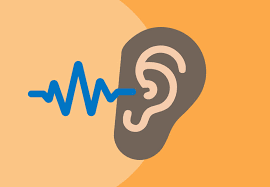Meditation Videos to Relax Your Mind
Watch here our pick of relaxing and calming videos to de-stress your mind.
Significant life events, whether positive or negative, can cause psychological stress. Difficult events, such as divorce, miscarriage, the death of a loved one, or the loss of a job, can cause most people to feel grief or distress. But even events that are considered positive by many—getting married, having a child, and buying a home—can lead to a significant amounts of stress. To adjust to this stress, people may utilize some combination of behavior, thought, and emotion, depending on the situation. People may use coping mechanisms for stress management or to cope with anger, loneliness, anxiety, or depression.

Watch here our pick of relaxing and calming videos to de-stress your mind.
Read more about this by clicking here.
Click here for some best podcasts to de-stress and soothe your frazzled mind.
Click here to listen to 111 Relaxing Sounds: Music Therapy for anxiety & stress relief, calm down, relax & find inner peace, healing meditation.
The use of effective coping skills can often help improve mental and emotional well-being. People who are able to adjust to stressful or traumatic situations (and the lasting impact these incidents may have) through productive coping mechanisms may be less likely to experience anxiety, depression, and other mental health concerns as a result of painful or challenging events.
People who find themselves defaulting to maladaptive coping mechanisms and/or experience difficulty utilizing effective coping strategies may eventually see a negative impact on mental and emotional well-being. Those who have a difficult time knowing how to cope with anxiety, stress, or anger may fall into the habit of relying on a maladaptive coping mechanism. Consuming alcohol can often help people feel less stressed in the immediate moment, for example, but if a person comes to rely on alcohol, or any other substance, in the face of challenging situations, they may eventually become dependent on the substance over time.
If you experience stress and don’t know how to cope, a therapist or other mental health professional can often help you develop and improve your coping skills. Therapists can provide support and information about coping skills, and therapy sessions can be a safe, nonjudgmental environment for people to explore the coping methods they rely on and determine how they help or hinder stress management.